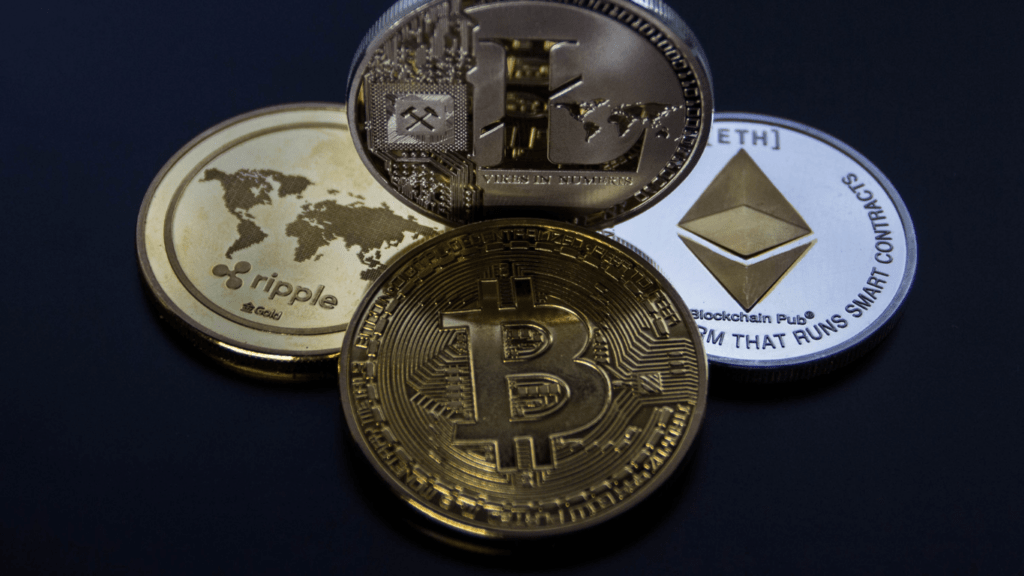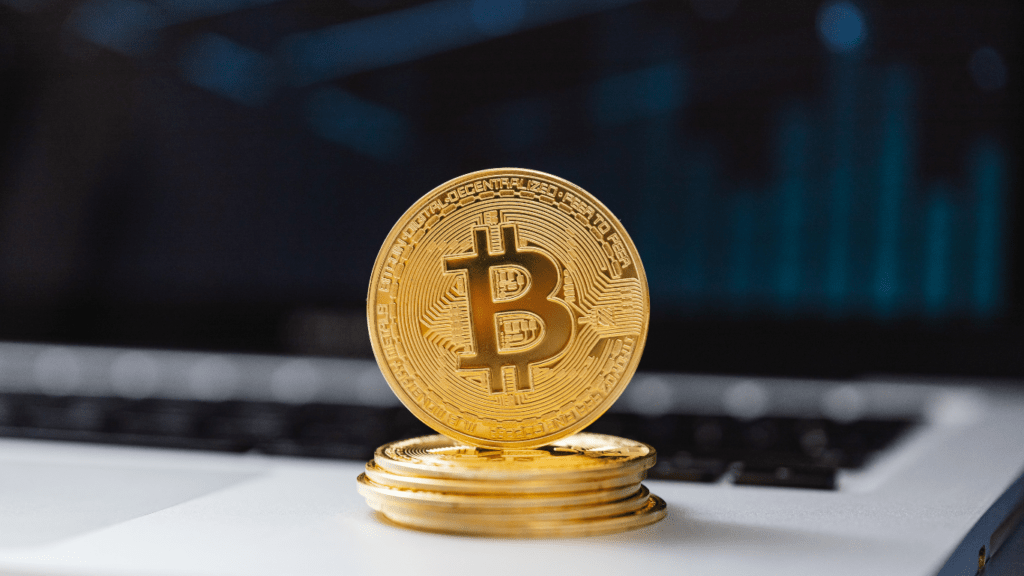In today’s interconnected world, geopolitical tensions have a ripple effect that extends beyond borders, impacting various sectors, including the crypto space. As an avid observer of cryptocurrency trends, I’ve witnessed how global political uncertainties can send shockwaves through digital currencies, influencing their value and market dynamics.
Navigating the volatile landscape of cryptocurrencies amidst geopolitical unrest requires a keen understanding of how external factors can shape the financial ecosystem. From regulatory changes to market sentiment, every move in the geopolitical arena can reverberate through the crypto space, presenting both challenges and opportunities for investors and enthusiasts alike.
Join me as we delve into the intricate relationship between geopolitical tensions and the crypto market, exploring the nuances that define this ever-evolving landscape.
Overview of Geopolitical Tensions in the Crypto Space
Reflecting on the intertwined nature of geopolitics and the crypto market, it’s crucial to grasp how global uncertainties act as significant drivers of change in the cryptocurrency space. Understanding the intricate connection between geopolitical tensions and digital assets unveils a layer of complexity that influences market dynamics and shapes the future landscape of cryptocurrencies.
Delving deeper into the impact of geopolitical factors unveils a nuanced narrative of challenges and opportunities, ultimately defining the evolving environment in which cryptocurrencies operate.
Impact on Cryptocurrency Market
Geopolitical tensions have a significant impact on the cryptocurrency market, influencing various aspects such as price volatility, regulatory changes, and investment behavior. These tensions can lead to a heightened sense of uncertainty among investors, resulting in fluctuations in the value of digital assets.
Price Volatility
Geopolitical tensions often trigger increased market volatility in the cryptocurrency space. For example, when geopolitical events create instability in traditional financial markets, investors may turn to cryptocurrencies as a safe-haven asset, leading to a surge in demand and subsequently affecting prices.
On the other hand, negative geopolitical developments can cause panic selling, driving prices down rapidly.
Regulatory Changes
Geopolitical tensions can also influence regulatory dynamics in the cryptocurrency market. Governments may respond to geopolitical pressures by implementing new regulations or tightening existing ones to exert control over the flow of digital currencies.
These regulatory changes can impact market sentiment, leading to fluctuations in trading volume and affecting the overall ecosystem’s stability.
Investment Behavior
Investors’ behavior in the cryptocurrency market is heavily influenced by geopolitical tensions. During times of heightened geopolitical uncertainty, investors may adopt a more risk-averse approach, shifting their investment strategies towards more stable assets or reducing their exposure to volatile cryptocurrencies.
Additionally, perceptions of geopolitical risks can influence long-term investment decisions, shaping portfolio diversification strategies in response to changing global conditions.
Geopolitical Factors Driving Crypto Market Trends
Exploring the intersection of geopolitics and the crypto market unveils the pivotal role that external forces play in shaping trends within the digital asset space. Geopolitical tensions serve as potent catalysts for changes in cryptocurrency valuations and market dynamics.
As an avid observer of the crypto landscape, I keenly analyze the following key factors driving market trends amidst global uncertainties:
- Government Regulations: Governments worldwide grapple with the regulatory implications of cryptocurrencies in response to geopolitical tensions. Regulatory decisions stemming from political pressures can significantly impact market sentiment, driving fluctuations in trading volume and investor behavior.
- Safe-Haven Status: During heightened geopolitical tensions, cryptocurrencies often emerge as alternative investments perceived as safe-haven assets. Investors seeking refuge from traditional markets turn to digital currencies, causing shifts in demand that influence price volatility.
- Investor Sentiment: Geopolitical uncertainties prompt investors to reassess risk exposure and adjust their investment strategies accordingly. The ebb and flow of global political events directly impact investor sentiment, influencing trading patterns and market trends.
- Long-Term Investment Strategies: Geopolitical factors compel investors to reevaluate their long-term investment decisions within the crypto space. Shifts in global dynamics drive a reexamination of risk profiles, leading to adjustments in portfolio allocations and diversification strategies.
By recognizing the intricate interplay between geopolitical factors and cryptocurrency market trends, one gains a deeper understanding of the multifaceted nature of this evolving landscape. The dynamic relationship between global uncertainties and the crypto space highlights the agility required to navigate the nuances of a market shaped by geopolitical forces.
Strategies for Managing Geopolitical Risks in Cryptocurrency Investments
Navigating the cryptocurrency market amidst geopolitical tensions requires a strategic approach to manage risks effectively while capitalizing on opportunities presented by global uncertainties.
Here are some key strategies for investors looking to safeguard their crypto investments:
1. Diversification of Portfolio:
Diversifying your cryptocurrency portfolio is a fundamental strategy to mitigate geopolitical risks. By spreading investments across different digital assets, you can reduce exposure to volatility associated with specific geopolitical events impacting individual cryptocurrencies.
Diversification helps in balancing risk and potential rewards, ensuring a more stable investment approach.
2. Stay Informed and Monitor Geopolitical Developments:
Keeping abreast of geopolitical developments and their potential impact on the cryptocurrency market is essential for making informed investment decisions. Monitoring global news, political announcements, and regulatory changes can help you anticipate market reactions and adjust your investment strategy accordingly.
By staying informed, you can proactively respond to geopolitical risks and leverage emerging opportunities.
3. Utilize Risk Management Tools:
Implementing risk management tools, such as stop-loss orders and hedging strategies, can help protect your investments during periods of heightened geopolitical tensions. Setting stop-loss limits allows you to define the level of acceptable losses, limiting potential downside risks.
Hedging techniques, such as futures contracts or options, enable investors to offset losses by taking positions that counterbalance adverse price movements.
4. Consider the Long-Term Outlook:
Taking a long-term perspective in cryptocurrency investments can help mitigate the short-term impact of geopolitical tensions. By focusing on the underlying technology, adoption prospects, and the overall market trend, investors can weather temporary fluctuations caused by geopolitical factors.
Investing with a long-term horizon allows you to ride out market volatility and capitalize on the transformative potential of blockchain technology.
5. Seek Professional Advice:
Consulting with financial advisors or cryptocurrency experts can provide valuable insights into navigating geopolitical risks in the crypto space. Experienced professionals can offer personalized advice based on your risk tolerance, investment goals, and market conditions.
Seeking expert guidance can help you develop a customized risk management strategy tailored to your specific needs and objectives. Incorporating these strategies into your cryptocurrency investment approach can enhance your ability to manage geopolitical risks effectively and seize opportunities in a dynamic market environment.
By adopting a proactive and diversified investment strategy, investors can navigate the complexities of geopolitics and position themselves for long-term success in the evolving crypto landscape.





